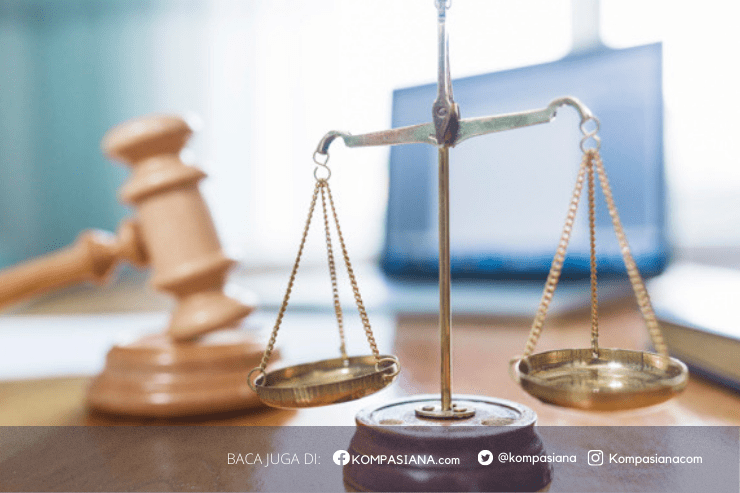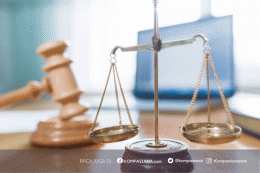KPK Arrests Individuals Linked to Governor in North Sumatra PUPR Corruption Case
The Indonesian Corruption Eradication Commission has recently apprehended individuals allegedly connected to the Governor of North Sumatra in relation to a suspected corruption case within the province's Public Works and Public Housing department, raising concerns about governance and potential abuse of power (Price, 2024). This situation underscores the pervasive nature of corruption in Indonesia, where individuals holding positions of authority, such as civil servants, regents, governors, and other government officials, often exploit their positions and authority to engage in corrupt practices (Gakur & Hufron, 2022). Indonesia has consistently ranked high in comparative studies of corruption among countries, highlighting the urgent need for increased efforts to combat corruption by authorities (Kamal & Arifin, 2019). The issue of corruption is not isolated to a single region, as numerous provinces throughout Indonesia, including Riau and West Java, have been identified as having severe corruption problems (Alfada, 2019). Corruption has become endemic within the country, infiltrating not only the central government in Jakarta but also extending to remote village areas (Srirejeki, 2020). The complexity of eradicating corruption is further compounded by the transformation of governance structures from centralized to decentralized systems, paradoxically leading to a more diverse and intricate web of corruption (Sriyana et al., 2017). The government has actively combatted corrupt practices through diverse policies, including laws and regulations, with the 1945 Constitution and the Law on the Corruption Eradication Commission serving as cornerstones of these efforts (Dewi, 2014). However, the ongoing nature of corruption cases indicates that these measures may be insufficient.
The arrest of individuals with close ties to the Governor has ignited public discourse about whether the Governor himself will be summoned for questioning, which could have significant implications for the political landscape in North Sumatra and the credibility of the regional government. Corruption in Indonesia constitutes a grave concern, significantly contributing to economic losses and draining state resources (Aulia, 2025). The ripple effects of corruption extend beyond mere financial implications, eroding public trust, distorting development initiatives, and exacerbating inequality (Yudhi, 2022). Eradicating corruption is deemed a crucial step towards fostering economic growth and enhancing social welfare, as it undermines fair competition and discourages investment. The state treasury, as defined in Article 1 Paragraph of the Law of the Republic of Indonesia Number 1 Year 2004, plays a pivotal role in managing state finances, and corruption directly undermines its integrity. (Ruslan et al., 2019) Despite the enactment of various laws, regulations, and the establishment of anti-corruption institutions, corruption persists as a formidable challenge in Indonesia (Rizky et al., 2023). This continued corruption suggests that a more holistic approach is needed, incorporating preventative measures, increased transparency, and stronger enforcement mechanisms, along with a cultural shift that emphasizes integrity and accountability within the government and society.
Examining the root causes of corruption in Indonesia reveals a complex interplay of factors, including the prevalence of competing vested interests, politically connected networks, inadequately compensated civil servants, poor regulatory quality, and weak judicial independence (Sriyana et al., 2017). The inability of leaders to carry out their duties and responsibilities creates opportunities for employees to engage in corruption (Handitya, 2019). There is a need for improved regulation to reduce the likelihood of corruption in local governments, along with the importance of public awareness. The lack of stringent oversight mechanisms and transparency further exacerbates the problem, as corrupt individuals can operate with relative impunity. Furthermore, political dynamics and the influence of money in politics create fertile ground for corruption, as individuals and groups seek to gain an advantage through illicit means. The prosecution of corruption cases often faces challenges due to the complexity of financial transactions and the involvement of influential figures, requiring strong coordination and cooperation between law enforcement agencies, anti-corruption bodies, and the judiciary.
To effectively combat corruption, Indonesia must adopt a multi-faceted strategy that addresses both the symptoms and the underlying causes of corruption, necessitating legal reforms, institutional strengthening, and cultural transformation. The implementation of robust internal control systems within government agencies, coupled with the promotion of ethical leadership and a culture of integrity, are critical steps in preventing corruption. Moreover, enhancing transparency and accountability through the use of technology, such as e-governance platforms and public asset declarations, can help detect and deter corrupt practices. Regular evaluations, public participation, and human resource capacity building are crucial for building a strong and resilient system against corruption (Rizky et al., 2023). Strengthening the capacity of law enforcement agencies and anti-corruption bodies to investigate and prosecute corruption cases, ensuring that corrupt individuals are held accountable for their actions, regardless of their position or influence, is important. The government also needs to consistently monitor and evaluate the effectiveness of anti-corruption measures (Rizky et al., 2023). Addressing corruption requires collaboration across various sectors, including the government, private sector, civil society, and the media, to create a united front against corruption (Rizky et al., 2023).
The role of education in fostering a culture of integrity and anti-corruption is also paramount, promoting awareness of the harmful effects of corruption and empowering citizens to demand accountability from their leaders (Indrajaya et al., 2021). Strengthening integrity within organizations through comprehensive strategies and increased attention can help address corruption (Rani et al., 2022). Continued efforts to improve governance, promote transparency, and enhance law enforcement are essential to curb corruption and foster sustainable development (Rizky et al., 2023). Emphasizing the importance of ethics and integrity in all aspects of public and private life, will instill a sense of responsibility and deter individuals from engaging in corrupt practices (Komalasari & Saripudin, 2015). Public education initiatives are essential for informing citizens about corruption prevention services and fostering public support for combating corruption and economic crime (Lester, 1999). By implementing these strategies, Indonesia can make significant strides in its fight against corruption, paving the way for a more just, equitable, and prosperous society (Winata, 2024). It has been found that anti-corruption education policies in higher education prevent corruption during the COVID-19 pandemic by equipping, training, and familiarizing students with appropriate behavior (Sumaryati et al., 2022).
References
Alfada, A. (2019). The destructive effect of corruption on economic growth in Indonesia: A threshold model. Heliyon, 5(10). https://doi.org/10.1016/j.heliyon.2019.e02649
Aulia, A. A. (2025). Disruption in Corruption Eradication in Indonesia. Public Integrity, 1. https://doi.org/10.1080/10999922.2025.2455757
Dewi, P. M. (2014). Upaya Pemberantasan Korupsi di Indonesia. 1(1). http://ejournal.unsa.ac.id/index.php/prosedingunsa/article/download/78/74
Gakur, N., & Hufron, H. (2022). PARAMETER PENYALAHGUNAAN KEWENANGAN YANG MERUGIKAN KEUANGAN NEGARA DALAM TINDAK PIDANA KORUPSI. Bureaucracy Journal Indonesia Journal of Law and Social-Political Governance, 2(3), 1108. https://doi.org/10.53363/bureau.v2i3.84







